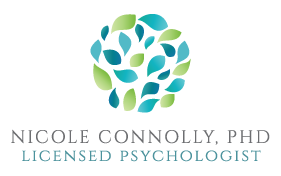Autism Warning Signs
As April is Autism Awareness month, I wanted to focus my posts this month on topics related to autism awareness. One of the biggest benefits that has come from the increased awareness of the scope and impact of autism in recent years is a greater understanding of the early indicators of autism spectrum disorders. Although the average age of diagnosis continues to be unacceptably high, specialists are becoming increasingly able to recognize and intervene earlier in life.
What is Autism?
To identify early warning signs, we first must understand what autism is. "Autism spectrum disorder" is a broad term that covers several different diagnoses, including "autism," "Asperger's syndrome," and "pervasive developmental disorder." The common factor across all of the different labels is a long-standing difficulty with social interactions, such as problems with interacting with others and with making and keeping friends. Kids with autism have difficulty with basic social abilities, such as eye contact, maintaining conversations, sharing attention, empathy, etc. Children on the autism spectrum may also have delays in speech development. Additionally, some children may have difficulty with rigidity, strong adherence to non-flexible routines, repetitive motor movements, or strong interests in one particular topic.I heard it said once that "if you've seen one child with autism, you've seen one child with autism." While there are certain deficits that are common in this population, every child has his or her own unique pattern of strengths and weaknesses. Despite that, research has found that there are certain early signs that are good predictors of a later diagnosis of autism.
Early Signs of Autism
No back and forth sharing of smiles or warm expressions by 9 months
No response to hearing his/her name by 12 months
No babbling by 12 months
No communicative gestures (such as pointing, waving, showing, reaching) by 12 months
No spoken words by 16 months
No spontaneous two-word phrases by 24 months
If you are noticing any of these signs in your baby or toddler, you should follow up with a professional as soon as possible. In older children, the signs of autism are much more varied.
What to Do
If you notice problems in your child's development, it is important to follow up on those concerns. As a parent, you are the world's leading expert on your own child. Trust your gut when it comes to your child.There are several different ways to follow up on potential developmental problems:
Talk to your child's pediatrician. In recent years, pediatricians and family physicians have become much more aware of and sensitive to developmental issues. Your child's doctor is a good starting point for following up on your concerns. If, however, you feel that your pediatrician is minimizing or not adequately following up on your concerns, you do have other options.
Consult with a child psychologist or other specialist. A child psychologist or other specialist with experience with autism spectrum disorders may be able to evaluate your child and recommend a plan of action.
Utilize government resources. In California, there is a network of government agencies, called Regional Centers, that provide assessment and treatment for children with developmental delays and autism spectrum disorders. If you have concerns, you may contact your local Regional Center to request an evaluation. Other states may have similar agencies.
